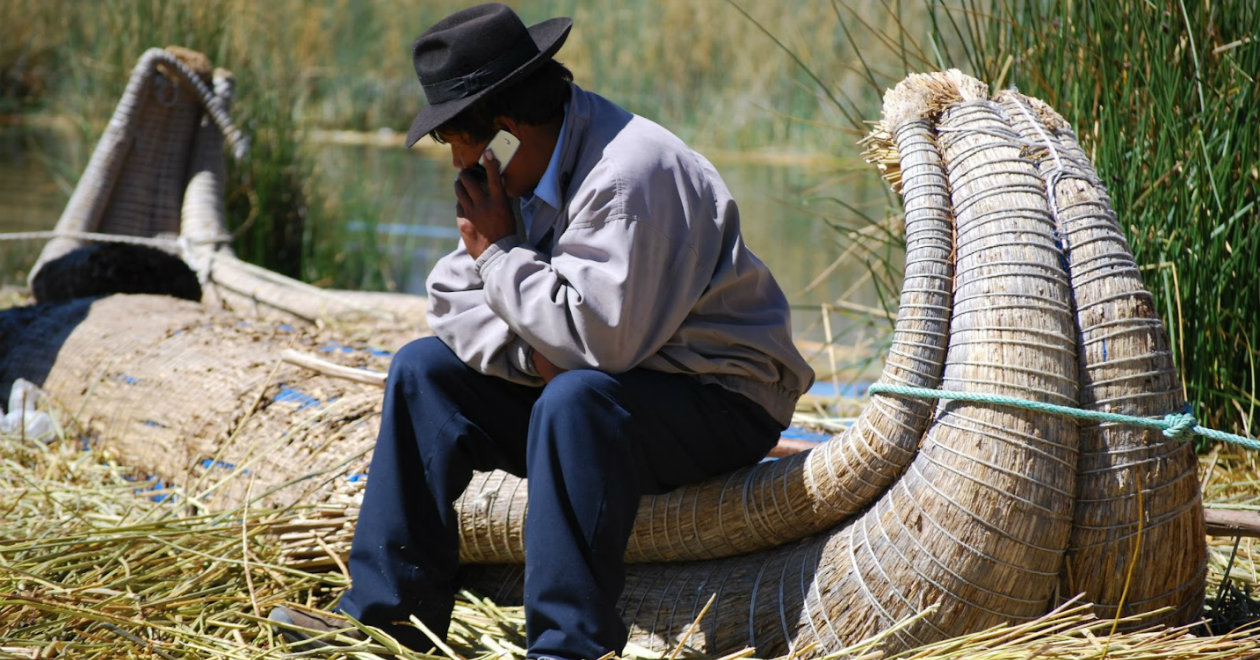One of the big questions discussed this year at the Prospectors and Developers Association of Canada (PDAC) 2015 Convention, the biggest annual gathering of mining professional from all over the world, in Toronto last week was how to create better systems for stakeholder engagement at a time of plummeting commodity prices and rising social demand from communities and workers. The ‘new normal’ in mining creates pressure to innovate in managing “above ground” risk to address the shortcomings of existing communication systems. For example, in order to better assess social risk and perceptions around mining, all community members – not just local elites – need to be able to safely voice their expectations and concerns, and this information needs to be timely, continuous, affordable, manageable and meaningful.
But how can such data be collected? What social impact information needs to be collected to help guide business decisions on de-risking strategies? What data can help inform policymaking around improving transparency and reducing social conflict?
The ubiquity of simple mobile phones offers a simple but effective opportunity to bridge the digital divide that social media channels currently cannot close. In the coming year, we will rigorously test the potential for mobile phones to improve stakeholder engagement by working with a major mining operator in Peru, and communities affected by mining operations. We are partnering with Innovations for Poverty Action and New York University to examine how direct information flows can be established between mining companies and communities and what measurable impact increasing transparency and information flow can have on reducing local level conflict. In the last decade Peru has experienced a surge in mining activities accompanied by a significant steady rise in social conflict related to mining. Between 2008-2012, The Fraser Institute records a 300 percent rise in social conflict, a trend which is confirmed by data from the Defensoria del Pueblo, Peru’s Ombudsman institution.
The objective of the project is to measure the impact of mobile-based grievance mechanisms in mitigating local, extractive-sector related conflict by improving the flow of information between companies and communities.
Ulula’s mobile-based platform will allow community members and mining companies to easily and directly exchange information regarding disputes, claims or other concerns and information through simple mobile phones. An integrated dashboard will collect and organize anonymous community messages and allow for company staff to directly respond to community members on their issues of concern, manage grievances and analyze data or information.
If a farmer finds that his well has been polluted by leaked mining tailings he can report this anonymously by sending a free SMS to the platform. The report will be automatically classified as an environmental related grievance and registered into the system. Through the dashboard, company staff can then manage the grievance directly and track the “status” of the grievance until the case is closed.
On the company side indicators such as the time taken to close a case can be used as a variable measuring the efficiency of addressing grievances, “responsiveness to community feedback” or “reduction in recurring grievances” and “user satisfaction on grievance response” can help measure the company’s social license to operate in real time.
An evaluation conducted by specialists from Innovations for Poverty Action and New York University will analyze the aggregate information flow and outcomes generated from the platform to understand how much improving direct dialogue between communities and companies affects to the use of violence and cooperation in local conflict, and perceptions of peace. Extractive sector-related social conflict will be monitored to establish causality throughout the study period. Periodic surveys will measure changes in community perceptions of conflict intensity or relations with the company, and perceptions of government efficacy.
Can providing an effective means of direct communication between community members and companies reduce information asymmetry and improve trust between parties? Will this result in reduced levels of conflicts between communities and companies?
We expect that the results from this experiment will help inform engagement strategies to overcome the persistent and complex challenges that mining companies and communities continue to face.
We will share preliminary results of the project later this year on this blog. Please stay tuned!
Photo by Sebastian Trzcinski-Clément

